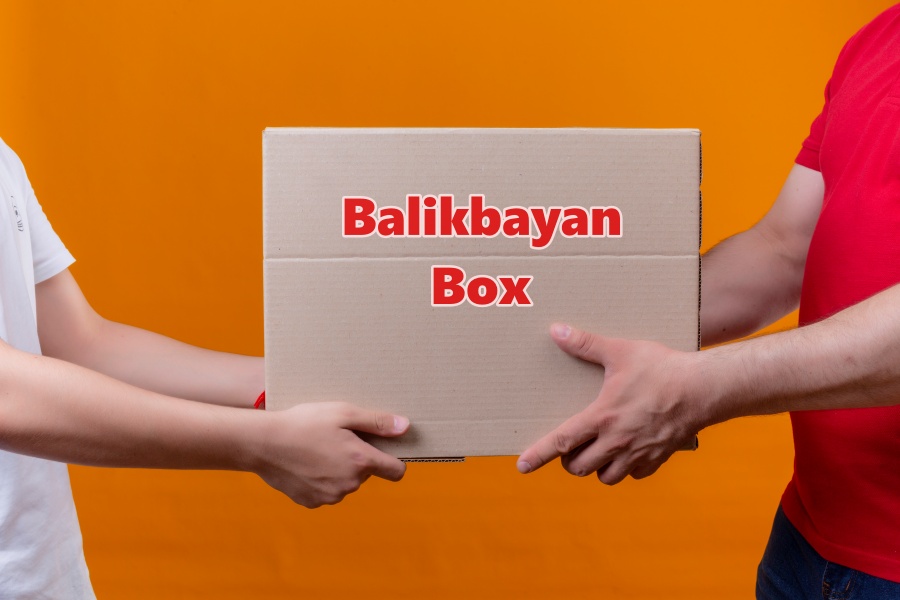Hospitable, creative, cheerful, cooperative, hardworking… These words have been used to describe Filipinos, not only in the Philippines, but around the world. However, although Pinoys have plenty of positive traits and values, we cannot deny the fact that there are negative traits that must be addressed, if we truly want to improve as a people.
In this article, we will take a look at negative traits of Filipinos. Please note that these characteristics do not necessarily apply to all Pinoys; certainly, there are many exceptions. That being said, we must admit that these traits have been used to describe Filipinos in general, whether we like it or not!
List of Negative Pinoy Traits and Values
Are you guilty of the following traits? Let us take a closer look at the negative traits that we need to change, as Filipinos:
1. Filipino Time
You’ve been invited to a party, set for 3:00 pm. But almost everybody knows that the celebration doesn’t really start until 4:00 pm, or even 5:00 pm! In fact, most people usually announce an earlier time when making invitations, just to make sure that everybody arrives by the “real” time, which is at least one hour later. Whew!
However, the Filipinos’ penchant for tardiness is not endearing at all, and it should definitely not be applied to the workplace. You may have heard of foreigners complaining about their Pinoy colleagues’ tendency to be late. We shouldn’t even be proud of calling this habit “Filipino time!” Let’s start turning things around, be punctual always, and make Filipino time… on time!
2. “Mañana” Habit
“Mañana” is the Spanish word for “tomorrow.” The mañana habit refers to Filipinos’ tendency to procrastinate; in other words, they like to put off “for tomorrow” an important task that they should actually be doing today. Hence, they usually end up “cramming” or rushing when the deadline draws near.
Coincidentally, the word “mañana” also sounds like a shortened version of “mamaya na,” which is is Tagalog for “(I’ll do it) later.” Now, we don’t really want to be famous for being lazy or for being slackers, right? We need to get rid of the mañana habit!
3. “Ningas Cogon”
Cogon is a type of grass that burns quickly; hence, “ningas cogon” literally means “burning cogon grass.” As a figure of speech, however, this phrase is used to describe Filipinos’ habit of starting out with enthusiasm… only to end up not finishing a task, or otherwise doing it halfheartedly. What’s the lesson here? In order to achieve excellence, we must strive to finish what we started… and to do it well!
4. “Bahala Na” Attitude
When faced with a challenging or difficult task, many Filipinos say “Bahala na,” which roughly means “Come what may” in English. In effect, the speaker is leaving the result to fate, instead of taking responsibility or finding a solution.
Uttering “Bahala na” may be considered by some as being religious or spiritual (i.e. leaving it all up to God). Indeed, there may be situations that are best left to Divine Providence, especially since Filipinos are known to be religious. However, when it comes to matters that we actually have control over, it’s always better to be proactive!
5. “Balat Sibuyas”
The phrase “balat sibuyas” literally means “onion skin” in Tagalog. Figuratively, the phrase is used to describe someone who is overly sensitive or easily hurt; a.k.a. onion-skinned.
Generally speaking, many Filipinos are onion-skinned, in the sense that they are easily affected by even the slightest criticism. We are so afraid of failure or rejection, that we tend to take criticism personally, to the point of becoming emotional. If we truly want to grow, we need to toughen up, “shed” our onion skins and see what we can do to improve ourselves!
6. “Mare, Ano’ng Latest?”
Nowadays, the term “Marites,” which is short for “Mare, ano’ng latest?” (Sister, what’s the latest news?) has replaced to word “chismosa” (gossiper). Indeed, a quick stroll around most Filipino communities would lead you to several groups, usually gathered by a sari-sari store, exchanging the latest gossip and rumors about almost everything, about neighbors, politicians, celebrities, etc.
As juicy as the latest rumor about a neighbor may sound, it certainly does not help improve the condition — of the neighbor or the gossipers — at all. Worse, it could even lead to damaged reputations and destroyed relationships. So, let’s try to avoid being called “Marites,” unless of course, your name really is Marites!
7. “Fiesta” Mindset
Basically every city, town, and barangay in the Philippines has a fiesta or festival of some sort. It usually involves festive decorations, fun activities, street parades, and lots of delicious Filipino food. Of course, let’s not forget about Christmas, birthdays, weddings, christenings, and many other occasions.
Now the tendency of most Filipinos, when hosting a party, is to go “all out.” They have a “fiesta” mindset — to provide as much food and drinks, to as many people — as possible. And while there’s certainly nothing wrong with celebrating, there’s such a thing as spending “within our means.” We don’t really need to invite everybody or prepare so much food… only to end up broke, or worse… in debt!
8. “Hello, Mars (Pautang)”
Speaking of debt, there’s a popular joke that when a “friend” texts or chats you with “Hello, Mars” (Hello, Sister), be very afraid because the next word could be “Pautang” (I need to borrow money). Haha. Funny, but true. Sigh.
Because of Filipinos’ habit of overspending (“the fiesta” mindset, remember?), the consequence is that many end up getting broke, or worse… in huge debt. If we want to have a healthy financial situation — and good relationships with our family and friends — let us take a look at our spending habits, avoid borrowing, and see if we need to cut back on our expenses instead.
9. Disregard for Rules
Arriving late. Cutting in line. Beating the red light. Jaywalking. Throwing rubbish on the street. Karaoke all night long. Going out even if there’s a curfew.
These are just some of the ways in which Filipinos exhibit a disregard for rules. Let us keep in mind that these rules have been put in place for good reasons… such as peace, order, safety, and cleanliness. If we want to have a more disciplined and organized way of life, we should start by following simple rules.
10. “Balikbayan Box” Mentality
The balikbayan box is a common item among Pinoys, especially among families who are supported by overseas Filipino workers (OFWs). However, there is such as thing as balikbayan box “mentality.” This means that while we are excited to receive money and things from our family member who is abroad, we tend to disregard or even abuse their efforts.
Being an OFW is not easy; they have sacrificed so much, just to be able to support their families back home. Let’s not abuse their generosity by being overdependent or insensitive to their plight. A simple thank you or even a gift to him/her will certainly do wonders. Don’t let them carry all the burden!
11. Colonial Mentality
Speaking of mentality, this is another type of attitude that we should definitely get rid of. Colonial mentality refers to a preference for foreign things, rather than our own. For instance, we usually gush over brands such as Louis Vuitton, Starbucks, Gucci, and the like… when there are plenty of local brands that are of high quality as well.
It’s time to “go local” and support Filipino products and services. This could be as simple as buying eggs from your neighbor’s sari-sari store, or wearing a Pinoy brand of shoes. When we choose to buy our fellow kabayan’s products, we end up contributing to the Philippine economy in the long run.
12. Crab Mentality
Of all the negative habits on this list, we believe that this could be the most harmful or detrimental to Filipino culture. Imagine a bucket full of crabs, all struggling and trying to climb up — only to pull each other down and not really going anywhere. This image represents “crab mentality,” or the tendency to pull other people down.
Why do we put other people down, anyway? Because of jealousy… envy? Instead of pulling them down, let us try to be happy and build them up. Instead of being jealous, let us consider another person’s success as motivation for us to do better. Besides, we all have different gifts and talents; there’s no need for crab mentality!
Some Final Thoughts
Every culture has its positive and negative traits. For us Filipinos, tardiness, mañana habit, gossiping, and “bahala na” attitude are some of the traits that we can certainly do without. Furthermore, having a “fiesta” mindset, disregard for rules, colonial mentality, and crab mentality doesn’t help us one bit, either!
It’s time for all of us to be introspective and see how we can turn things around. Among the above traits, which ones have become a habit for you? Having identified these habits, what can you do to change for the better? By pondering these questions, we can begin by improving ourselves… and the time will come when we shall see greater progress in our communities, and in the entire country.
READ NEXT: 9 Survival Tips Every First-time OFW Must Know







